After Losing My Mom and Brother, My Father and I Found an Unorthodox Way to Grieve
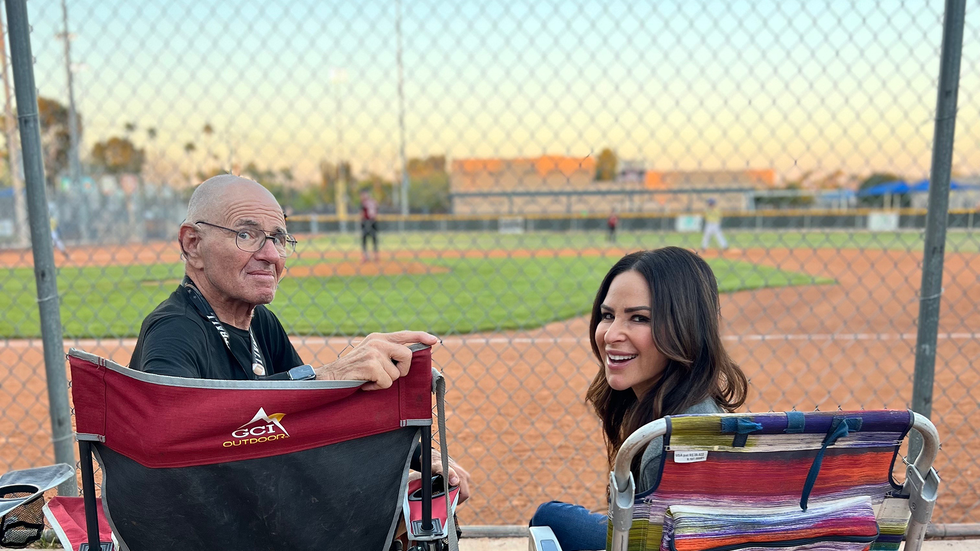
"Hearst Magazines and Yahoo may earn commission or revenue on some items through these links."

To really understand the reason my dad and I fell in love with the Purple Pinstripes, let me paint a picture. You know those people who get so into Little League, you’re kind of embarrassed for them? I assure you, we were not those people.
We were way worse than those people.
We lived and died by every pitch, exalted by a base hit just inside the line, devastated by a strikeout. We were just as invested as if we were watching elite athletes with multi-million dollar contracts, not fourth graders playing for snack bar tickets. We cheered into the dry desert air until our throats were raw. We dissected every play of every inning of every game. We became one with each other, and one with our team. That’s how a single season of Little League baseball became our grief group of two, a group that met exactly 16 times at Ingleside Middle School in Phoenix, Ariz.
This grief group had no moderator and no rules other than those dictated by the Little League of America — and the human heart.
“Morgan would’ve gotten that ground ball.” My dad grimaced during our team’s first game, wiping his twitchy eyes with a bandana. “He never missed a grounder at first. You have to play the bounce. Don’t let the bounce play you.”
Morgan was my older brother, a fastball-loving lefty who was a baseball prodigy until he stopped playing at age 13.
During the course of that spring 2019 season, I watched my older son play and I mourned my brother, who had died of spinal cancer at 47 three years before. In the bleachers and along the sidelines, I also mourned my mom, who died four months to the day after her son. The losses came one on top of the other, sending me free-falling into a formless, lightless grief-o-sphere where I couldn’t seem to right myself. To deal with this so-called cumulative grief, I tried books and meditation and synagogue and dharma talks and even traditional grief support groups, but I always dropped out.
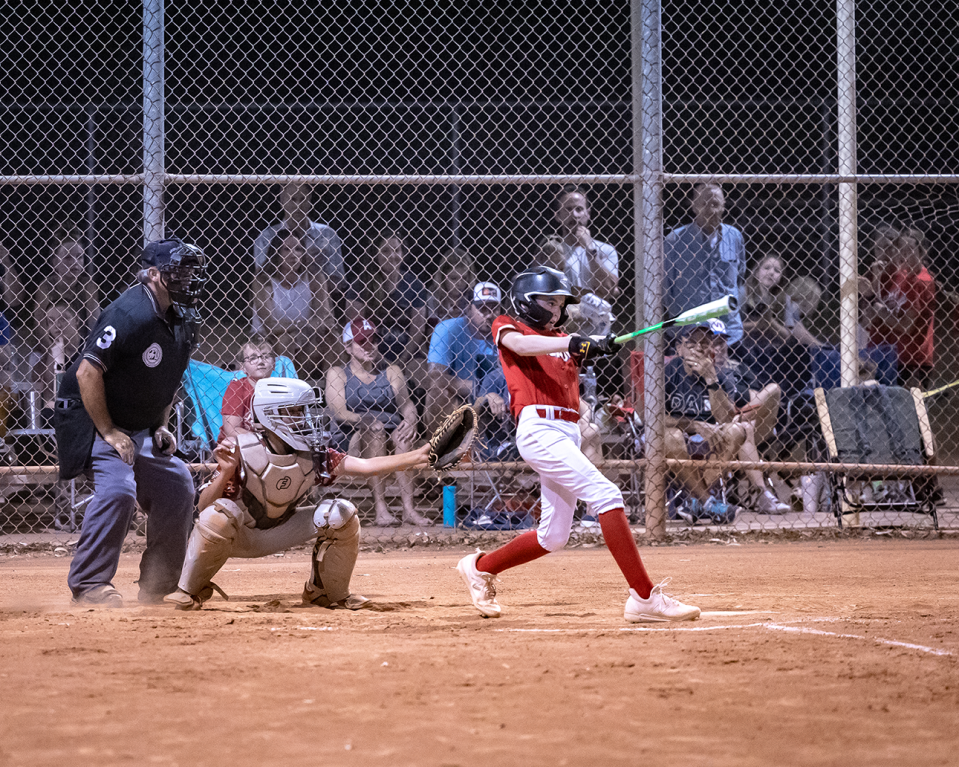
It felt like a wall of disbelief and sadness separated me from my old life. Even in grief groups, I felt detached from the mostly widows and widowers swapping aphorisms from our creaky circle of metal folding chairs. I was glad these groups existed, but the exercise felt rehearsed and phony, the room stuffy and stale.
But it was different when I sat with my dad on the sidelines of a baseball field alongside a busy, winding street as my husband coached, holding our breaths at every full count.
When the harsh light of grief became too much, Little League games helped dim the glare through regular doses of normalcy and distraction.
I hadn’t always gotten along with my dad. He’d won full custody after my parents’ divorce when I was three years old, but returned me to my mom after six months, while keeping Morgan. He’d subjected us to a fairy tale evil stepmother. He’d ruined my credit as an adult, after asking me to co-sign on a loan, then going bankrupt. Still, even when he was broke, he was the most honest car mechanic you ever knew, never charging people who couldn’t afford repairs. When I used to visit his garage as a kid, he’d let me put washers and gaskets on my fingers pretending they were rings, and brag to the other mechanics about how creative I was. He’d check out poetry records from the library and play them for us on Sundays, his only day off. He was charming and irresponsible and frustrating and annoying, sometimes all at once.
When my brother got sick, the devotion he showed him was both beautiful and heartbreaking. But the tension of my brother’s awful sickness also sometimes turned my dad and me against each other. We had ugly fights in hospital parking lots and cafeterias. I yelled at him that he’d been an awful dad, and he stormed away, silent and cold.
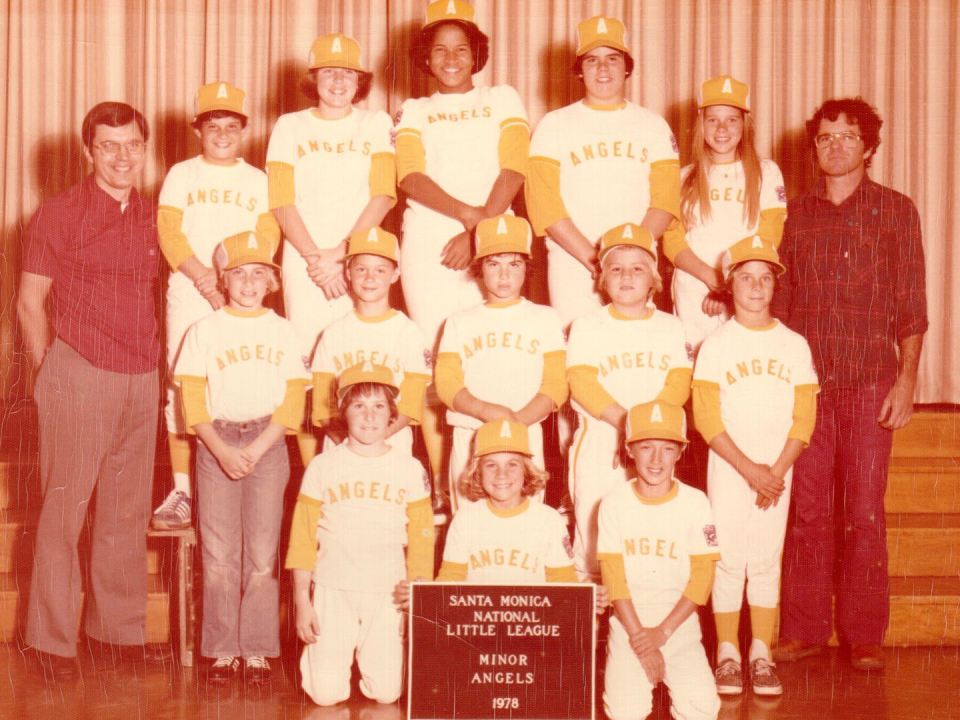
That was before this season of high-stakes Little League, the year the kids start pitching the entire game, turning us into over-caring weirdos, nervously rooting in unison. It had been three years since Morgan died, and we’d watched every season together, but this one was different. Instead of a world of endless swings and participation trophies, this was the first season my son’s team played where a champion would be crowned, wins and losses tracked. Every play mattered. Our team needed our attention, our strategizing and our silent prayers.
We were a congregation of two in a chapel of chalk lines.
“This kid in the two hole can’t hit,” whispered my dad, out of the side of his mouth, a bargain basement Bob Costas.
“That kid couldn’t hit water if he fell out of a boat,” I agreed. “Ugh, I can’t believe I just said that about a fourth grader. I’m an awful person, Dad.”
“You’re a monster,” he said, punching my arm, cackling.
It was grief or baseball, and we’d take baseball every time.
“You can’t protect your kids from life,” my dad would say as we sank into the depths of darkness when my son walked a batter.
He was talking about baseball, but I knew what he meant.
My dad didn’t seem to want to talk much about grief. What was the point? It didn’t raise the dead. And maybe once you started crying out loud in front of people about your dead son, you’d never stop. Dad had once leaned back in a folding chair on the patio of his trailer and announced, “There are no stages of grief. That’s all crap. There’s before, and there’s after.”
Baseball helped us make it through the after.
We would text back and forth all day before a game, reviewing our thoughts on the batting order, our opponents, the starting pitcher’s emerging curveball. And of course sometimes, we talked a little smack.
“What’s up with that kid’s swing?” I asked after a player took a bad hack.
“Sheesh, T. It looks like he’s trying to club a baby seal.”
“Dad!”
“Am I wrong?” He shrugged. With a flourish, I pulled my phone from the side pocket of my beach chair.
“Who are you calling?”
“Greenpeace.”
He elbowed me in the ribs. I elbowed him back, and we laughed, the silhouette of Camelback Mountain etched in the indigo sky over left field.
Once, after a game, my dad sat in the passenger seat of my car, his hands resting daintily on his fanny pack. He stared out the window and blinked hard. “It’s out of order, T.” I didn’t dare start the car, because he rarely wanted to talk about Morgan, and I always wanted him to. “A father shouldn’t outlive his son.”
“I know,” I said.
And I didn’t press it. Trunks opened and closed around us, Little Leaguers hoisting their bags inside, the sound of cleats clomping across cement, little boys going home.
I understood then why the season was starting to heal us.
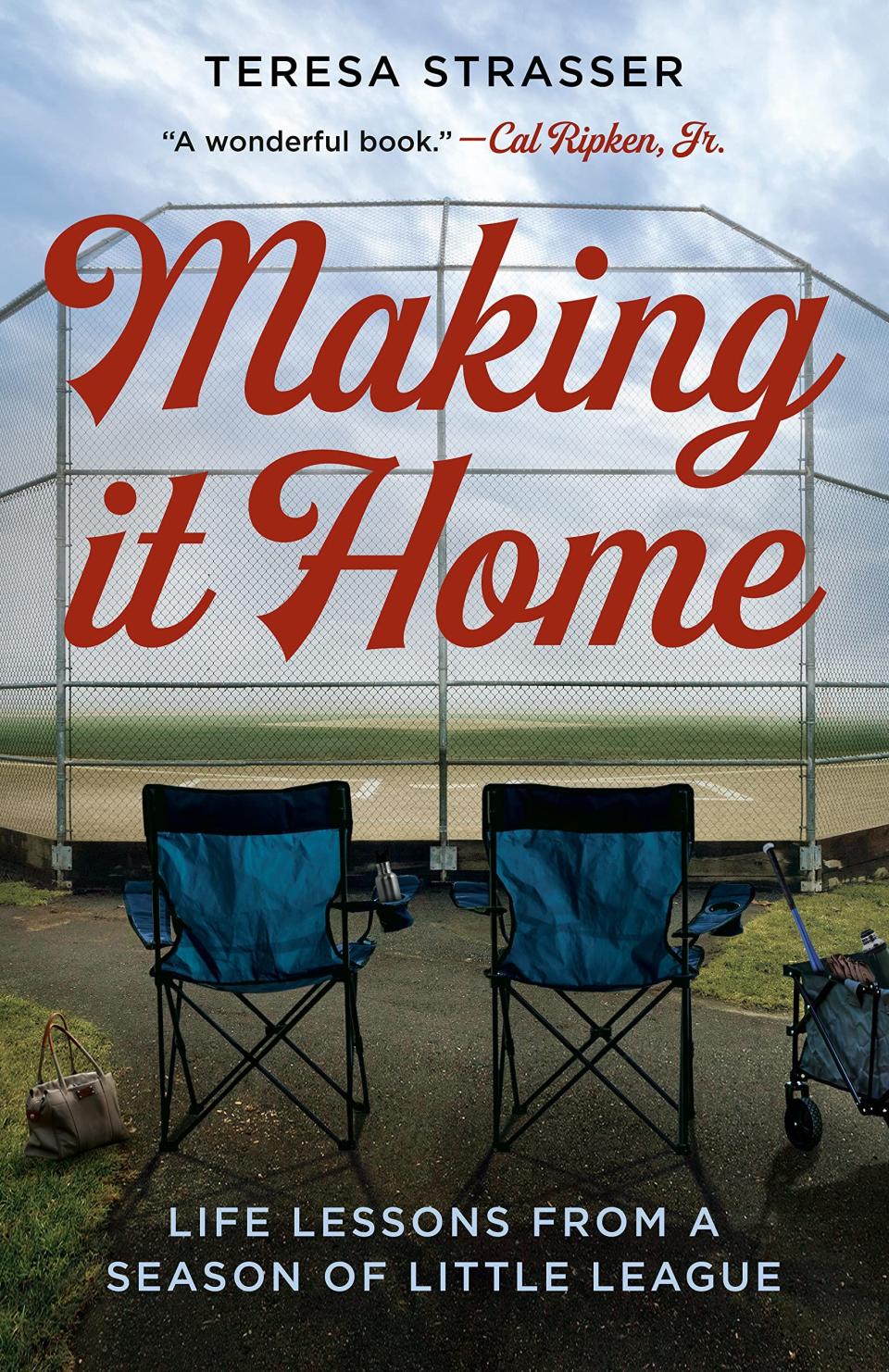
Making It Home: Life Lessons from a Season of Little League
$14.99
amazon.com
On the diamond, fair was fair and foul was foul and rules were rules. Things didn’t go out of order, like a father outliving his son. In fact, the rules have barely changed since my brother manned first base. There was comfort in that.
And not to get too romantic about it, but baseball is timeless.
Literally. Despite Major League Baseball recently implementing a pitch clock that speeds up each batter, baseball time isn’t measured in seconds, but in outs. Theoretically, a game could still last forever, so no game is every truly hopeless, no comeback impossible. Redemption is baked right into the sport. And I started to believe that redemption was possible for me, too, that I could survive my grief. That spring, we got the hang of hoping, one inning at a time, of tallying all the ways things could go right, even if they sometimes didn’t. Hope tipped its cap and flashed us a grin as we watched my son, connected by baseball not only to his teammates, but also to his uncle in the Great Beyond.
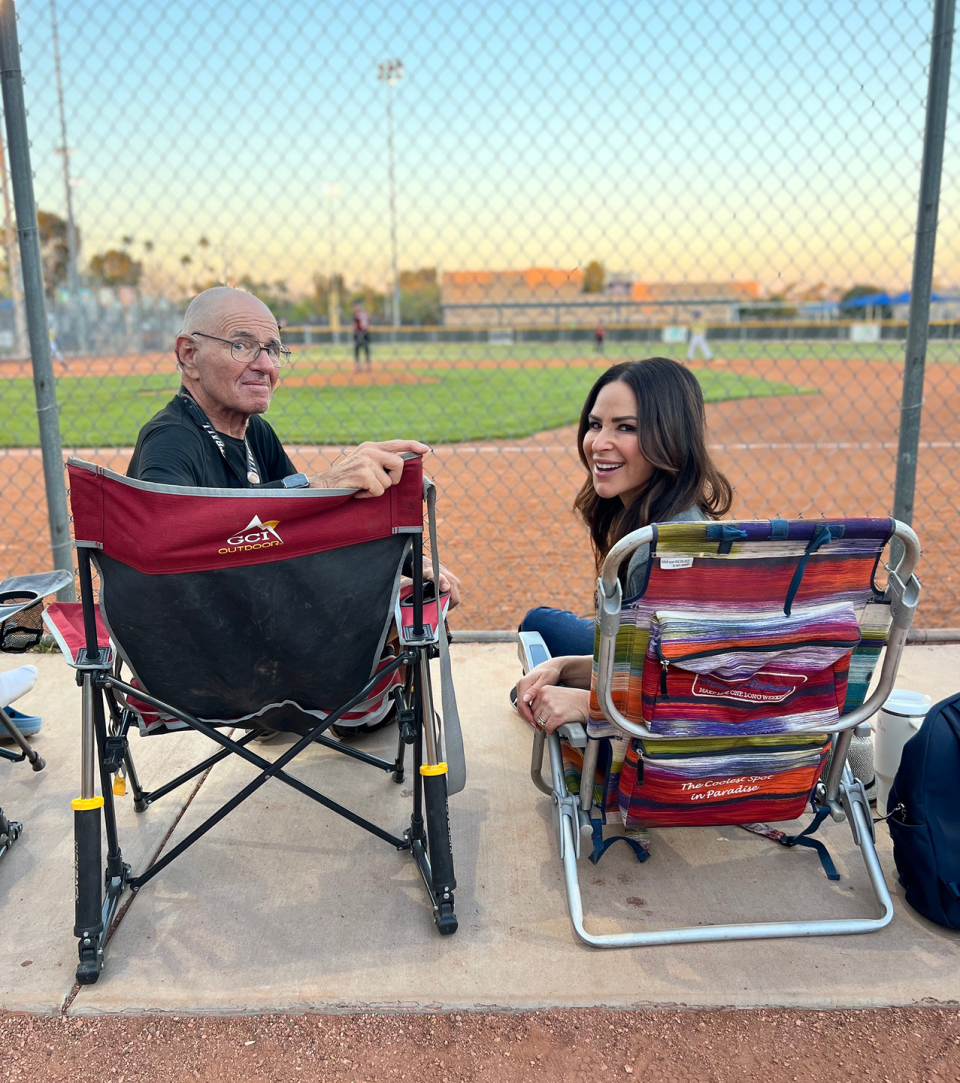
You probably already know that there’s no one right way to do grief.
For us, it was in the bleachers, learning to play the bounce, like my big brother had done when he played first base for his Little League team, the Santa Monica Angels, a team name that hits different now.
Like most diehard fans, my dad and I hated losing. We never got used to it. But in our grief group behind the first base line, we learned to live with it. There was no other way.
Teresa Strasser's new book, Making It Home: Life Lessons From a Season of Little League, is available now from your favorite bookseller. This essay is part of a series highlighting the Good Housekeeping Book Club — you can join the conversation and check out more of our favorite book recommendations.
You Might Also Like

